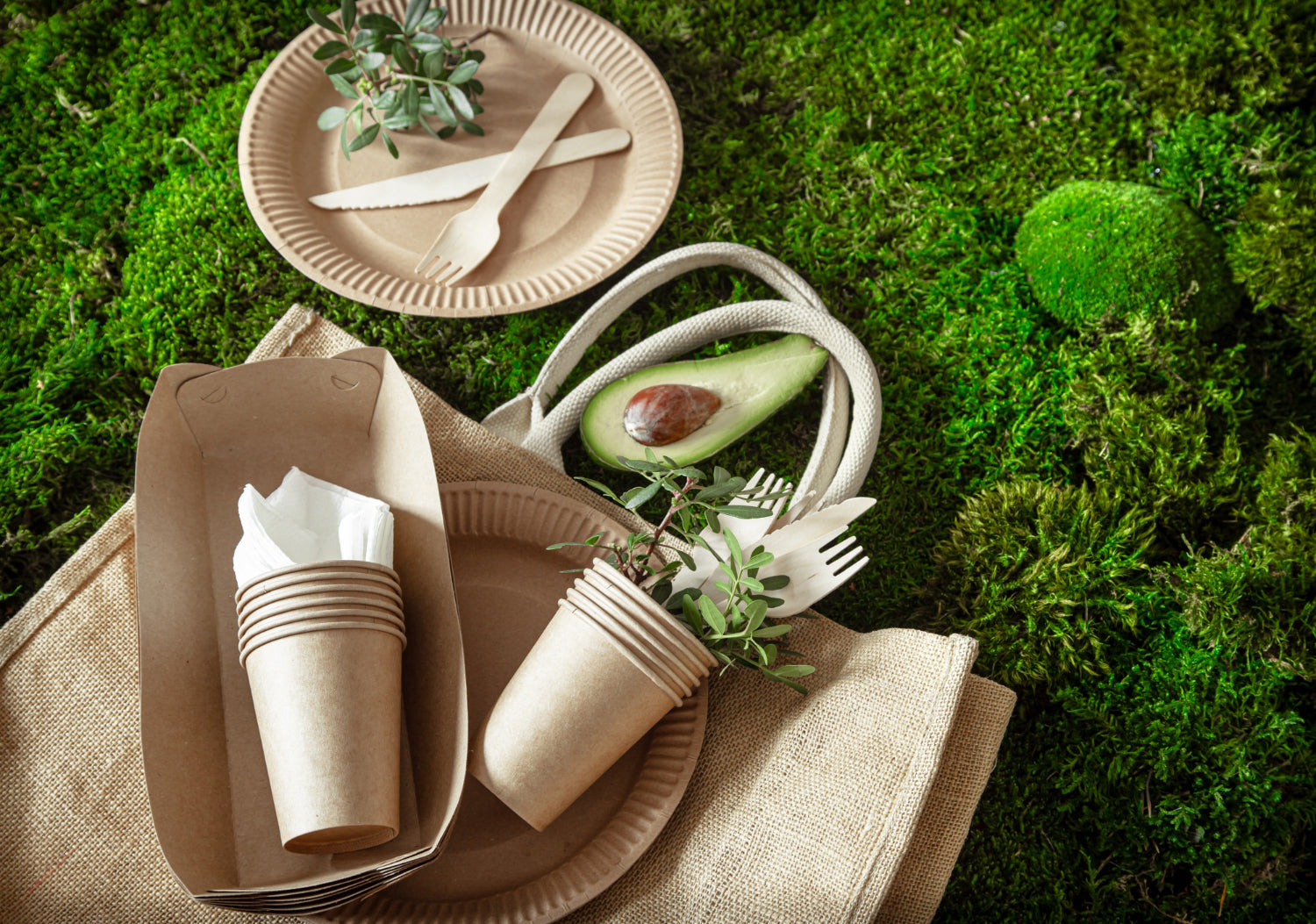Subscribe to our newsletter to stay up to date on product releases, industry news and more!
Subscribe to our newsletter to stay up to date on product releases, industry news and more!

Singapore is getting serious about sustainability — and the Green Plan 2030 is at the heart of it all. This national initiative is all about making Singapore a greener, cleaner, and more climate-resilient place to live and do business.
If you're in the food and beverage (F&B) industry — whether you run a café, a cloud kitchen, or a busy hawker stall — this plan affects you more than you might think.
Let’s take a look at what the Green Plan is all about and what it means for F&B businesses, especially when it comes to takeaway packaging, waste, and staying competitive in a fast-changing market.
Launched in 2021, the Singapore Green Plan 2030 sets big goals across five focus areas:
City in Nature – Enhancing urban greenery by planting one million trees and ensuring that every household is within a 10-minute walk from a park.
Sustainable Living – Promoting eco-friendly habits, reducing waste sent to landfills by 30% by 2030, and encouraging the use of public transport and cleaner-energy vehicles.
Energy Reset – Increasing solar energy deployment fourfold by 2025 and aiming for 2 gigawatt-peak of solar energy by 2030, enough to power around 350,000 households annually.
Green Economy – Developing Singapore into a hub for green finance and services, and supporting enterprises to adopt sustainable practices.
Resilient Future – Strengthening climate resilience by enhancing food security and water sustainability, and preparing for the impacts of climate change.

Singapore wants to reduce the amount of waste sent to landfills by 30% by 2030 — and single-use food packaging is a big part of the problem. That means:
Businesses will need to shift to eco-friendly takeaway packaging that’s compostable, biodegradable, or recyclable.
Customers will be looking for businesses that use sustainable containers, not plastic clamshells or foam boxes.
Singapore has already introduced a plastic bag charge at supermarkets — and it’s only a matter of time before plastic containers and cutlery face the same fate.
What this means for you:
Get ahead of regulations by switching to plant-based packaging like bagasse trays, PLA-lined paper bowls, or wooden cutlery.
It’s not just better for the environment — it shows your customers you care.
Singaporeans are becoming more eco-conscious. They’re searching for:
Sustainable cafés near me
Food delivery in eco packaging
Zero waste restaurants Singapore
If your brand is using sustainable packaging and reducing waste, promote it! Add it to your menu, your GrabFood page, and your social media. Customers are looking for it — make it easy for them to choose you.
The government is backing businesses that go green. Under the Green Economy pillar, there are:
Grants for sustainability projects
Incentives for using green suppliers and energy-efficient appliances
Recognition for eco-conscious brands
Whether you’re a small stall or a growing F&B chain, switching to eco packaging in Singapore now helps future-proof your business — and might even save you money in the long run.
Here are a few easy steps to align with the Green Plan:
✅ Swap plastic for compostable take-out containers
✅ Choose local, eco-friendly packaging suppliers
✅ Encourage customers to bring their own containers or opt out of cutlery
✅ Join community or supplier initiatives focused on reducing food waste
✅ Train your team to understand your sustainability efforts — and talk about them
The Singapore Green Plan 2030 is changing the way businesses operate — and that includes the food industry. With more rules (and expectations) around waste and sustainability, now’s the time to act.
If you run an F&B business in Singapore, switching to eco-friendly packaging isn’t just the right thing to do — it’s a smart move for your brand, your customers, and the planet.
Need help making the switch?
At Element Packaging Singapore, we supply high-quality, affordable, and fully compostable food packaging. From custom-branded bowls to sustainable trays and containers, we’ve got you covered.
Let’s make takeaway better — together.
Government of Singapore. (2021). Singapore Green Plan 2030. Retrieved from https://www.greenplan.gov.sg
National Environment Agency (NEA). (n.d.). Reducing Packaging Waste. Retrieved from https://www.nea.gov.sg/our-services/waste-management/3r-programmes-and-resources/reducing-packaging-waste
Ministry of Sustainability and the Environment. (2023). Zero Waste Masterplan. Retrieved from https://www.mse.gov.sg/resource-room/category/2023-03-30-zero-waste-masterplan/
Land Transport Authority (LTA). (2022). Singapore's EV Vision. Retrieved from https://www.lta.gov.sg/content/ltagov/en/industry_innovations/technologies/electric_vehicles.html
CNA. (2023, March 2). Singapore to have mandatory disposable carrier bag charge at large supermarkets from July 3. Channel News Asia. Retrieved from https://www.channelnewsasia.com
Enterprise Singapore. (n.d.). Support for Sustainability in SMEs. Retrieved from https://www.enterprisesg.gov.sg/
{"one"=>"Select 2 or 3 items to compare", "other"=>"{{ count }} of 3 items selected"}